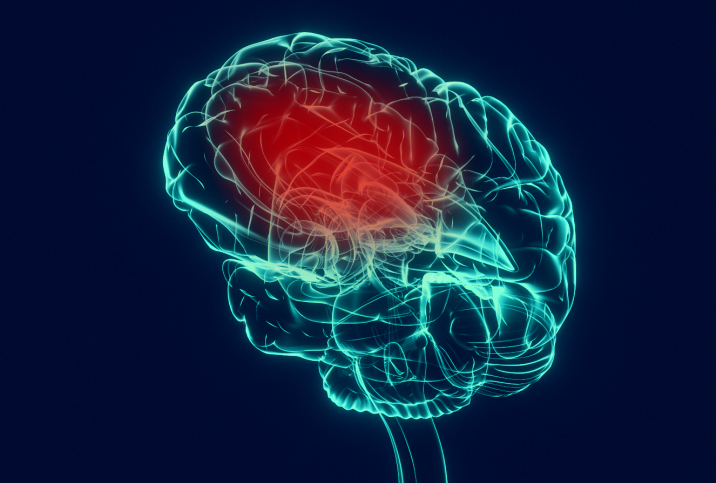How to Kill a Boner: Stress and Anxiety Are Killing Your Erections

It’s no secret we live in stressful times. It’s also no secret that stress and anxiety can affect our sex lives. However, many of us don’t fully understand how the mind and body work together to help men achieve an erection, and how stress can affect that function.
Let’s examine how it all works and take a look at a few tips for dealing with stress and getting your sex life back on track, even during anxious times.
Erectile dysfunction and the mind
It’s well established that erectile dysfunction (ED) can stem from physical causes, including high blood pressure, diabetes, heart disease, obesity, alcohol abuse and more. But studies suggest that quite often, ED is also heavily rooted in psychological issues. Emerging research also shows the source of stress—financial issues, relationship trouble, work problems, even PTSD— doesn’t really matter, because any stress at all can result in difficulty getting and maintaining an erection.
Men, as many have learned in ways hidden and/or embarrassing, don’t always have conscious control over their erections. An erection is the work of the autonomic nervous system (ANS), which means it’s an involuntary process that the brain and central nervous system (CNS) control by sending signals to the body. It’s the same type of function as getting goosebumps, sweating or blushing when you’re embarrassed. The penis does whatever it wants to do, and you’re just along for the ride.
The nervous system and erections
Under the domain of the autonomic nervous system are the sympathetic and the parasympathetic nervous systems.
The sympathetic nervous system (SNS) is responsible for fight-or-flight response and inhibits erections when it perceives a threat. After all, our earliest ancestors wouldn’t have survived long if they’d remained focused on “sexy time” with a toothy predator charging at them. So when the brain perceives a threat, the SNS tells the body to release adrenaline, increase blood flow to the brain and muscles, close sphincters, and dilate the pupils—all the while directing blood flow away from the genitals and digestive functions.
On the other hand, the parasympathetic nervous system (PNS) relaxes the body, which is a must for a man to achieve an erection. The PNS tells the muscles to relax, reduces the heart rate, and allows enhanced digestion and absorption of nutrients. Scientists refer to the parasympathetic nervous system as an “excitatory pathway” that passes stimulating signals from the brain to the appropriate body parts during arousal, say, from being with an enticing partner or while looking at porn.
It’s pretty straightforward: When you’re feeling anxious, your body is operating on the sympathetic nervous system, which tells your body not to want or have sex. The SNS disrupts hormone levels and blood flow to the genitals and can have a serious effect on thoughts and emotions.
What’s worse—I have experienced a stress-related ED incident, so I know of what I write—the brain may then treat subsequent sexual encounters as stressful situations simply because you're feeling anxious about performing.
Tips to reduce stress for better sex
In order to gear your body toward the right state of mind for a healthy erection, the most effective option is to address anxiety directly, using one or more of the following five methods.
Therapy
Talking with someone about what’s stressing you out can help ease the pain. Men, especially, are conditioned to bottle up stress and avoid sharing their emotions, and that can compound the issues they face. Erectile dysfunction and stress can have so many psychological factors—depression, anxiety, relationship problems and sleep issues, just to name a few—that spending some time with a therapist would be a great first step to getting your sex life back on track.
Sex therapy
Trained experts can help you shift your focus onto the sensations of sex rather than your stressors. Sex therapists often teach and use exercises that help you stay attentive to the pleasures of sex rather than thinking about your performance. When a partner is involved in the sessions, sex therapy is said to be successful up to 65 percent of the time for men with stress-related ED.
Meditation
Meditation is gaining mainstream respect as a valuable tool in dealing with a wide variety of mental health issues. Studies have directly shown that meditation can help men with erectile dysfunction by teaching them how to center their minds and relax their breathing and body.
Deep breathing
On a related note, deep breathing can significantly reduce physical tension and mental stress. Various studies show that mindful deep breathing can measurably reduce stress, as evidenced in lowered heart rate and cortisol levels.
Exercise
Regular exercise also has a measurable, ongoing effect on reducing stress. Even as little as five minutes of aerobic exercise can begin amplifying the anti-anxiety effects of endorphin release and more, according to the Anxiety and Depression Association of America.
The bottom line is while you may not have direct control over your erections, you can exert some control over your stress and anxiety. Learning how to do that can go a long way in the bedroom.


















